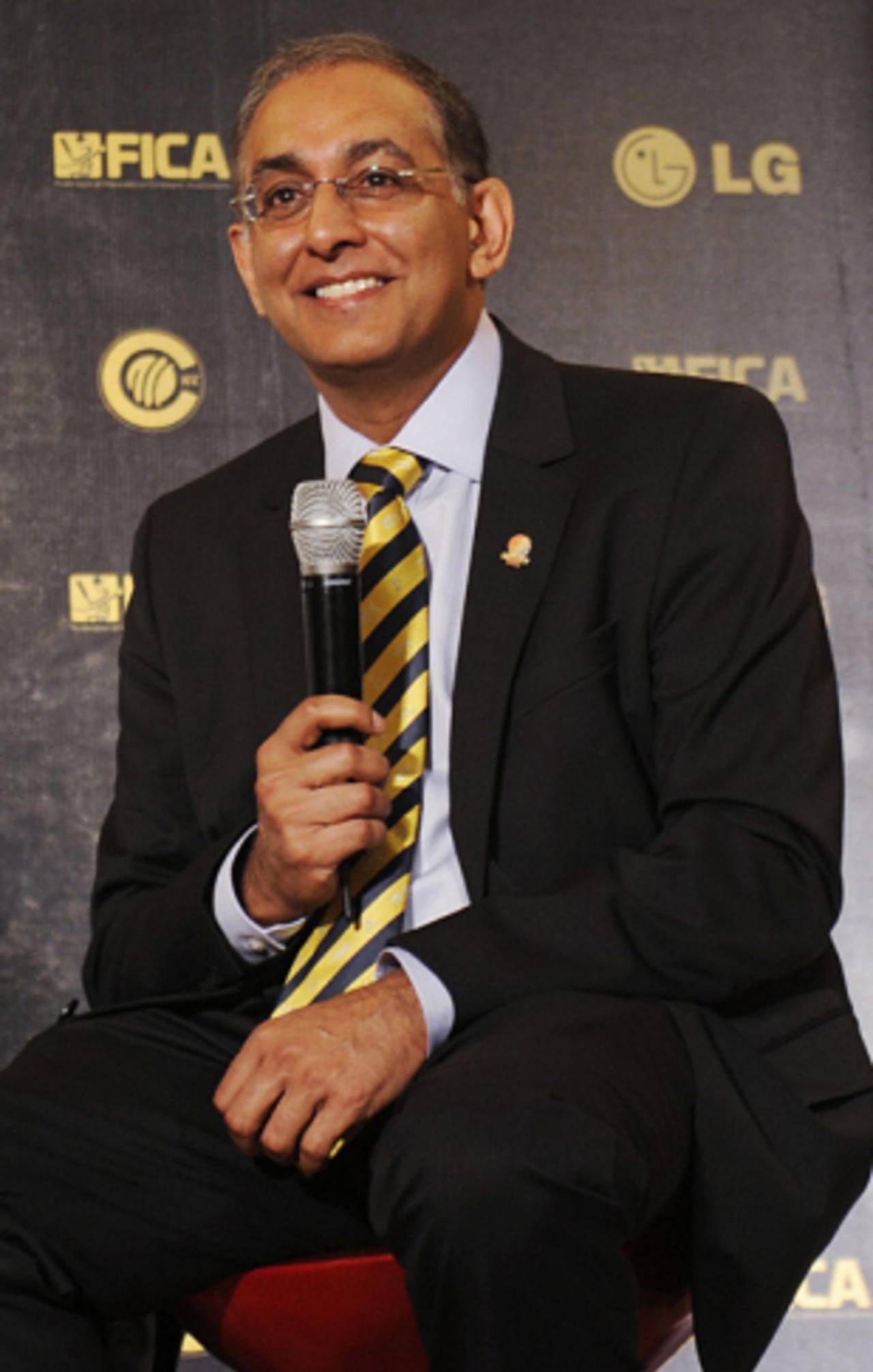ICC and Indian officials to meet WADA over dope tests
Top officials from the ICC and the Indian board are to meet later this month with David Howman, director-general of WADA, the world anti-doping agency, to discuss a "workable solution" to the impasse over cricket's anti-doping policy
Ajay S Shankar
Nov 16, 2009, 9:25 AM

Haroon Lorgat, the ICC chief executive, described discussions on the issue as "work in progress" • AFP
Top officials from the ICC and the Indian board are to meet later this month with David Howman, director-general of WADA, the world anti-doping agency, to discuss a "workable solution" to the impasse over cricket's anti-doping policy. The meeting will come three months after the Indian board publicly rejected the contentious whereabouts clause in the ICC's policy and stalled its implementation.
Haroon Lorgat, the ICC chief executive, confirmed to Cricinfo that such a meeting was on the cards and described discussions on the issue as "work in progress". Lorgat did not reveal any details but Cricinfo has learnt that a possible resolution will involve two options, both of which were first proposed by Cricket Australia (CA) soon after BCCI rejected the ICC's whereabouts procedure in August.
The first option has WADA, the ICC and BCCI exploring whether India's concerns about out-of-competition testing -- over the privacy, freedom and security of its players in the testing pool -- can be addressed effectively within the existing policy. Basically, given the packed international schedules, India's cricketers are expected to be on the road for most of the year, and the objective would be to convince the BCCI that any out-of competition testing will, for all practical purposes, take place only at official training sessions.
Apparently, the feeling within the ICC and among some of its 10 full members is that the BCCI was initially unaware that the WADA guidelines could be interpreted in a practical manner. But a senior BCCI official said that though the Indian board would approach the proposed meeting in November with an open mind, it prefers the second option, which is based on the model adopted by FIFA, football's governing body.
This option involves further negotiations with WADA and requires the ICC to go back to the table, possibly constitute a working group, and return with a whereabouts procedure similar to FIFA's. The football model, which has not been challenged by WADA, has three testing pools and only those in the first pool -- high-risk players (read: doping suspects) , those penalized before for doping offences and those coming back from injury -- need to comply with the daily individual whereabouts procedure that has been objected to by the BCCI. FIFA has two other testing pools where, instead of individual players providing whereabouts information, "elite teams" will provide the required information and, that too, only on team activity days -- match venues, official training sessions, official functions and the like.
If similar rules are applied to cricket, the onus is on the respective cricket boards to provide location and time details for all official activities such as matches, training sessions, functions and the like; players with long-term injuries or drug issues will, of course, have to file the information individually. This solution, in fact, mirrors the BCCI's stand on the issue. Shashank Manohar, the BCCI president, had suggested to the ICC in August that instead of players revealing their whereabouts in advance, the governing body should consult the Indian board, which will ensure that the player will be available within 24 hours at the required location for testing.
The current ICC anti-doping policy was approved by its executive board, including the BCCI, in January and led to the setting up of one testing pool, the International Registered Testing Pool (IRTP), which included 11 top-ranked cricketers each - nine male and two female - from the eight top cricket boards. All those in this IRTP were to comply, from August 1, with the individual whereabouts procedure that mandated these players to inform an ICC-nominated official through an online system before every three months, where they would be for one hour every day for the next 90 days.
The 11 Indian players in the pool have expressed security concerns in this regard, especially because some of them such as Sachin Tendulkar and MS Dhoni face threats from terrorist organisations. The BCCI has also said that this clause, which prescribes severe penalties for defaulters including a ban for up to two years, violates privacy guarantees specified in the Indian constitution and that providing such details in advance was not practical given the hectic and fluctuating schedules of international cricketers.
Other international cricketers in the testing pool from other countries had also expressed privacy and practicality concerns about the clause but agreed to abide by it within the ICC's July 31 deadline.
The ICC, however, needs WADA compliance to be part of the larger Olympic movement and to establish its credibility as an international sporting organisation. Asked what the ICC hoped to achieve during the meeting with WADA and BCCI this month, Lorgat told Cricinfo: "I would like to gain understanding: whether there is lack of understanding on the part of ICC, BCCI or WADA. All we need to do is understand exactly what the issues are - perhaps it is not such a big challenge as we see."
Ajay Shankar is a deputy editor at Cricinfo